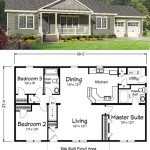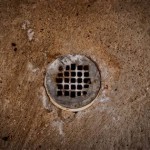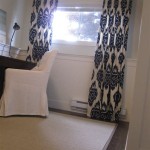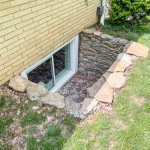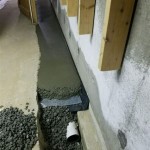Glass Block Basement Windows Installed: Enhancing Value and Performance
Glass block basement windows represent a significant improvement over traditional window options commonly found in below-grade spaces. They offer a unique blend of security, energy efficiency, and aesthetic appeal, making them a preferred choice for homeowners seeking to upgrade their basements. The installation process, while relatively straightforward, requires careful planning and execution to ensure optimal performance and longevity. This article will explore the benefits of glass block windows, outline the installation process, and address key considerations for a successful project.
Historically, basement windows were often an afterthought, constructed with minimal attention to detail and functionality. Single-pane glass, flimsy frames, and inadequate sealing led to drafts, moisture infiltration, and security concerns. Glass block windows emerged as a durable and aesthetically pleasing alternative, offering improved insulation, enhanced security, and a degree of privacy that standard windows often lack. Their robust construction and distinctive appearance have solidified their position as a popular choice for basement renovations and new construction projects.
Key Benefits of Glass Block Windows
Several compelling reasons contribute to the popularity of glass block windows for basement applications. These advantages stem from their inherent properties and construction techniques, making them a superior option compared to conventional window types.
Enhanced Security: Glass block windows are significantly more difficult to break than standard glass windows. The thickness of the blocks and the mortar joints between them create a formidable barrier against forced entry. This added security provides homeowners with peace of mind, knowing that their basement is less vulnerable to break-ins.
The individual glass blocks are typically much thicker than standard window panes. The mortar joints, when properly installed, further reinforce the structure, making it extremely difficult to penetrate without specialized tools and significant effort. This inherent resistance to forced entry makes glass block windows a strong deterrent for potential intruders.
Additionally, the design of glass block windows often eliminates traditional hardware such as latches and hinges, which are potential weak points in conventional windows. The absence of these vulnerable components further enhances the overall security of the installation.
Improved Energy Efficiency: Glass block windows offer superior insulation compared to single-pane or even double-pane windows. The air trapped within the hollow glass blocks acts as a thermal barrier, reducing heat transfer and helping to maintain a stable temperature in the basement. This insulation translates to lower energy bills and a more comfortable living space.
The U-value, which measures the rate of heat transfer through a material, is typically lower for glass block windows than for standard windows. A lower U-value indicates better insulation. This improved thermal performance reduces the amount of heat lost in the winter and heat gained in the summer, leading to substantial energy savings over time.
Furthermore, the airtight seal created by the mortar joints prevents drafts and air leaks, further enhancing energy efficiency. This complete seal minimizes the exchange of air between the interior and exterior, contributing to a more consistent and comfortable indoor environment.
Increased Privacy: The textured surface of most glass blocks obscures the view from the outside, providing a greater degree of privacy than clear glass windows. This is particularly beneficial in basements, where privacy is often a concern due to their proximity to sidewalks or neighboring properties.
While glass block windows allow natural light to enter the basement, they prevent clear visibility from the outside. The level of obscurity varies depending on the pattern and texture of the glass blocks, allowing homeowners to choose a style that meets their specific privacy needs. Some patterns offer a more diffused light, while others provide a higher degree of visual obstruction.
This privacy feature is especially valuable in urban or suburban settings where houses are closely spaced together. It allows homeowners to enjoy natural light in their basement without sacrificing their privacy or feeling exposed to the outside world.
The Glass Block Window Installation Process
Installing glass block windows is a multi-step process that requires careful attention to detail. While DIY installation is possible, it is often recommended to hire a professional contractor to ensure proper installation and optimal performance. The following steps outline the general process:
1. Measurement and Preparation: The first step is to accurately measure the existing window opening. This measurement will determine the size of the glass block window unit needed. It is essential to account for any irregularities in the opening and to ensure that the new window will fit snugly within the existing frame.
The existing window frame may need to be cleaned and prepared for the new installation. This may involve removing loose debris, sanding down rough surfaces, and applying a primer to ensure proper adhesion of the mortar. A level and plumb line should be used to ensure that the opening is square and that the glass block window will be installed correctly.
2. Mortar Mixture Preparation: A special type of mortar is typically used for glass block window installations. This mortar is designed to provide a strong bond between the glass blocks and to prevent water infiltration. The mortar should be mixed according to the manufacturer's instructions, ensuring a consistent and workable consistency.
It is crucial to use the correct type of mortar, as using the wrong type can lead to cracking, water damage, and structural instability. The mortar should be mixed in small batches to prevent it from drying out and becoming unusable. Proper mixing techniques are essential to ensure that the mortar is strong and durable.
3. Glass Block Window Assembly: The glass blocks are typically laid in the opening one at a time, with mortar applied between each block. Spacers are used to ensure consistent joint widths and to maintain proper alignment. The blocks should be carefully positioned and pressed firmly into the mortar to ensure a strong bond.
The assembly process requires patience and precision. Each block should be checked for proper alignment and levelness before the mortar sets. Any excess mortar should be removed immediately to prevent staining and to ensure a clean finish. Special attention should be paid to the corners and edges of the window to ensure a watertight seal.
4. Mortar Joint Finishing: Once the mortar has set, the joints are finished using a special tool called a jointing tool. This tool is used to create a smooth, concave surface on the mortar joints. This finish not only improves the appearance of the window but also helps to prevent water from penetrating the joints.
The jointing process requires a steady hand and a keen eye for detail. The joints should be consistently finished to create a uniform and professional appearance. Any imperfections should be corrected before the mortar fully hardens. The finished joints should be smooth, watertight, and aesthetically pleasing.
5. Sealing and Clean-up: After the mortar has fully cured, the perimeter of the window is sealed with a waterproof sealant. This sealant prevents water from seeping in between the window and the surrounding wall. The area around the window should also be cleaned to remove any mortar residue or debris.
The sealant should be applied carefully and evenly to ensure a watertight seal. Any excess sealant should be removed immediately. The surrounding wall should be thoroughly cleaned to remove any traces of mortar or dust. A clean and well-sealed window will provide years of trouble-free performance.
Considerations for Successful Glass Block Window Installation
Several factors can influence the success of a glass block window installation. These considerations encompass structural integrity, code compliance, and aesthetic preferences.
Structural Integrity of the Foundation: Before installing glass block windows, it is crucial to assess the structural integrity of the foundation wall. Any existing cracks or weaknesses should be repaired before proceeding with the installation. Installing glass block windows in a compromised foundation can exacerbate existing problems and lead to further damage.
A structural engineer may need to be consulted to assess the condition of the foundation and to recommend appropriate repairs. Any necessary repairs should be completed before the glass block window installation begins. A solid and stable foundation is essential for the long-term performance and durability of the window.
Local Building Codes and Regulations: It is essential to comply with all local building codes and regulations when installing glass block windows. These codes may specify minimum window sizes, ventilation requirements, and structural considerations. Failure to comply with these codes can result in fines or the need to redo the installation.
Contacting the local building department is the best way to ensure compliance with all applicable codes and regulations. A building permit may be required before the installation can begin. It is important to obtain all necessary permits and approvals before starting the project.
Ventilation Requirements: Basements typically require adequate ventilation to prevent moisture buildup and mold growth. While glass block windows provide excellent insulation, they do not typically offer ventilation. Therefore, it may be necessary to install a separate ventilation system to ensure proper airflow in the basement.
A small exhaust fan or a dedicated ventilation window can provide the necessary airflow. The size and type of ventilation system will depend on the size of the basement and the local climate. It is important to consult with a qualified HVAC professional to determine the best ventilation solution for a specific basement.
Aesthetic Considerations: Glass block windows are available in a variety of patterns, sizes, and shapes. Homeowners should carefully consider the aesthetic implications of their choice and select a style that complements the overall design of their home. The pattern of the glass blocks can affect the amount of light that enters the basement and the level of privacy that is provided.
Different patterns offer varying degrees of obscurity and light diffusion. Some patterns are more decorative than others. It is important to choose a pattern that matches the homeowner's personal preferences and the architectural style of the house. The size and shape of the glass block windows can also affect the overall appearance of the basement.

How To Install Glass Block Windows New Brunswick Wi Accurate Basement Repair

Installing Glass Block Windows In Basement Diy Family Handyman

13 Frequently Asked Questions About Glass Block Basement And Bathroom Windows Innovate Building Solutions
Standard Water Why Now Is The Best Time To Install Glass Block Windows In Your Basement

How To Install Glass Block Windows New Brunswick Wi Accurate Basement Repair

Glass Block Window Installation For A Basement

Glass Block Installation Basement Window Installations

Basement Glass Block Windows In St Louis

Glass Block Window Installation For A Basement

Pour In Place Basement Windows Install 5 Minutes
Related Posts
